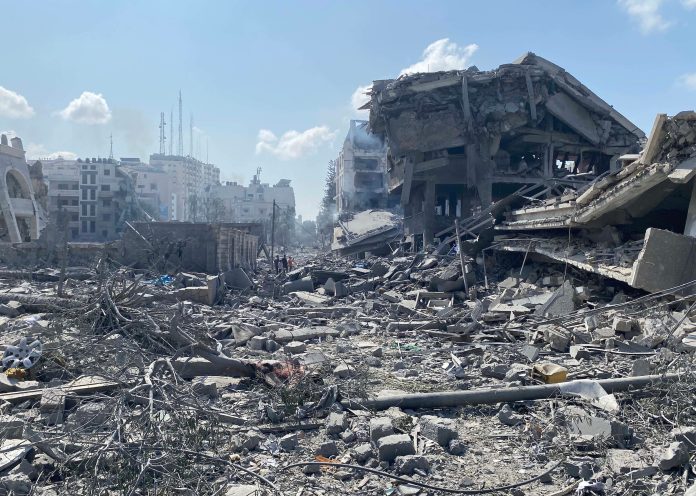Liam Glavin ‘27 (he/him) is a government major from Falls Church, Virginia. He loves running, reading and spending time with friends and hopes to instill values of political and civic engagement across the community. Contact him at ljglavin@wm.edu.
The views expressed in the article are the author’s own.
August 10, 2024, Israel bombed the Al-Tabi’in School, located in Gaza City, which held displaced Palestinians and killed an estimated 100 people.
Witnesses describe scorched earth: dismembered bodies, charred corpses, heads blown off and unspeakable atrocities, as reported by The Middle East Monitor. Palestinians frantically panned through the rubble, looking for what remained of their loved ones. Bodies were left unidentifiable, with remains left in plastic bags.
The Al-Tabi’in Massacre was not an isolated incident. There’s been the Flour Massacre, condemned by UN experts. There’s been the Tents Massacre, reported by Jacobin and numerous other publications, sparking worldwide condemnation. There’s been the continual massacre of schools and hospitals, further condemned by UN leaders and experts. Medical workers slaughtered, per The New York Times. Aid workers deliberately attacked and killed, per Human Rights Watch. Journalists executed attempting to do their job, per the Committee to Protect Journalists. Incalculable amounts of suffering perpetrated by the Israeli military toward the Palestinian people. A cyclical existence of torment, death and despair.
According to an article published in The Lancet, a world-leading academic journal, when accounting for indirect deaths caused “beyond the direct harm from violence,” the death toll from this conflict could conservatively be attributed to an estimated 186,000 dead, with the true figure likely far above that. 186,000 represents approximately 10% of Gaza’s total population.
What will you allow yourself to be complicit in? This university has refused to “pursue a boycott of Israel,” an entity ruled by the International Court of Justice through an interim decision to be engaging in a plausible campaign of genocide against the Palestinian people. Who are we, as not only members of this university but as fellow human beings, if we cannot stand against genocide?
For the people and children of Gaza who will never again breathe life into this world and for a world ravaged by so much suffering and oppression, do something. Do anything. Contact your elected representatives on and off campus. Attend local government meetings and protests. Be a constant source of pressure to those in positions of power because eventually, when the time comes and enough pressure builds up, it has to go somewhere.
We’re not free until we’re all free,
Liam Glavin

